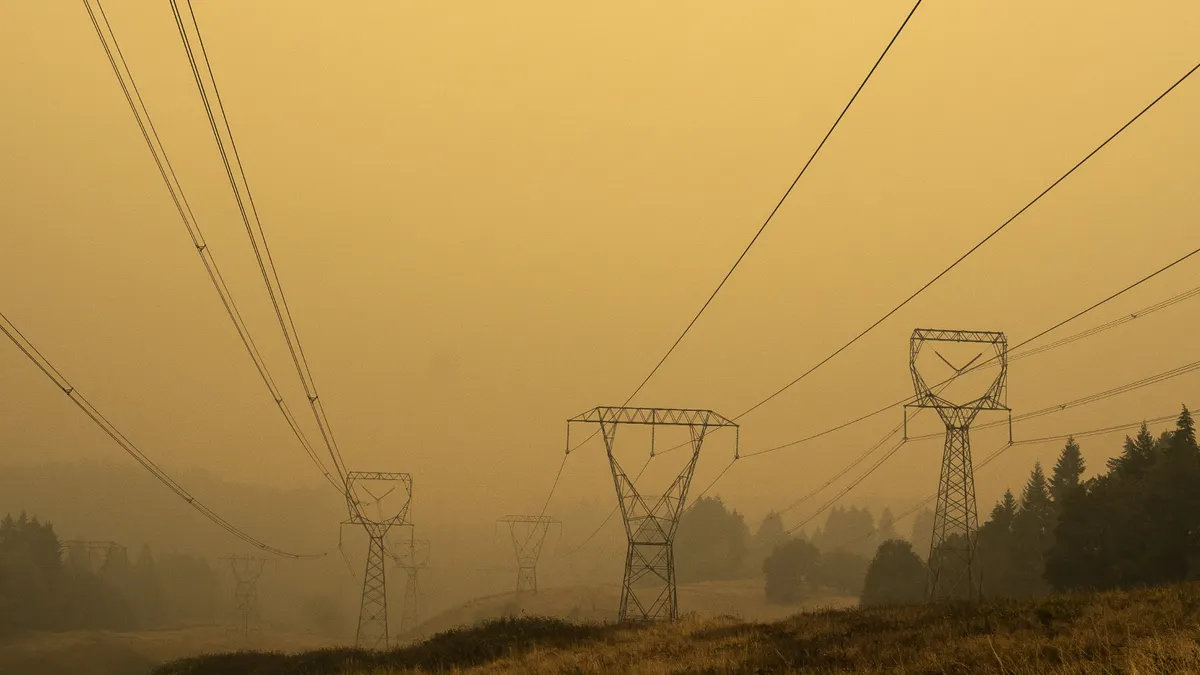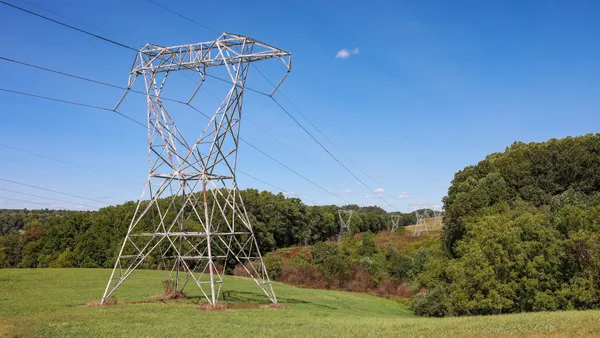Dive Brief:
- PacifiCorp is urging the Federal Energy Regulatory Commission to dismiss challenges to the utility company’s inclusion of $1.7 billion in wildfire-related costs and liabilities in its transmission rates, according to a Friday filing at the agency.
- PacifiCorp contends that “formal challenges” and complaints brought by the Bonneville Power Administration, Powerex Corp., Deseret Generation & Transmission Co-Operative and the Utah Associated Municipal Power Systems fail to show the costs were imprudently incurred, according to the Berkshire Hathaway Energy subsidiary. Idaho Power on Friday withdrew its formal challenge to the transmission rates.
- PacifiCorp, based in Portland, Oregon, said the accounting and ratemaking for its formula transmission rates were “undoubtedly correct,” including the addition of wildfire-related liabilities in an accrual account that requires utilities to estimate future losses.
Dive Insight:
The dispute comes as utilities are grappling with financial issues related to wildfires in an era of climate change. Since January, the country has seen more wildfires than it has over the same period of any of the past 10 years, according to the National Interagency Fire Center, although it is not leading in total number of acres burned.
“Destructive wildfires and other extreme weather events are, unfortunately, becoming more common in the West,” PacifiCorp told FERC.
Outstanding wildfire-related complaints in Oregon and California total about $54 billion, not counting any doubling or trebling of damages or punitive damages included in the complaints, the utility company said in an Aug. 4 filing with the U.S. Securities and Exchange Commission.
PacifiCorp has asked FERC for permission to include costs and liabilities related to wildfires that occurred in 2020 and 2022 in its transmission rates. PacifiCorp is seeking a $158 million, or 32%, “true up” to its 2023 transmission rates and a $241 million, or 45%, rate hike for its 2024 rates, according to Powerex, the power marketing arm of the British Columbia Hydro and Power Authority.
The challengers to PacifiCorp’s updated formula rates contend in part that the company failed to show its wildfire-related costs were prudent — and that in one case, a jury found the company to have been negligent. They also say PacifiCorp shouldn’t be allowed to recoup future liabilities.
However, only one of those fires — the James fire — ended in a jury trial. The jury found that PacifiCorp was negligent in its actions related to the fire. PacifiCorp is appealing the verdict.
Of the $631 million in wildfire damages paid in the 2023 rate year, only $55 million is related to the James case, according to PacifiCorp.
“This means that the challengers have presented no evidence of imprudence as to the majority of the costs at issue, falling well short of their burden,” PacifiCorp said.
“The facts show that PacifiCorp’s utility management practices and its actions surrounding each fire event were prudent, even if a jury found a causal relationship between a power line ignition and fire-related damages,” the utility company said.
PacifiCorp also asked FERC to dismiss the complaints filed against it, saying they were filed along with the formal challenges in violation of FERC practice.
PacifiCorp has about 2.1 million customers in California, Idaho, Oregon, Utah, Washington and Wyoming.
In joint comments Friday, Pacific Gas and Electric, San Diego Gas & Electric and Southern California Edison urged FERC to continue assessing allegations of imprudence on a case-by-case basis and giving utilities the presumption of prudence in formula rate proceedings.
Bonneville, for example, contends that PacifiCorp was required to show the prudence of its costs as an initial matter in the update filing, the California-based investor-owned utilities said. Other parties can rebut the presumption of prudence by showing there is “serious doubt” about the prudence of an expenditure, the utilities noted.
“The commission’s long-standing presumption of prudence serves a valuable purpose in keeping rate filings manageable and efficient,” the utilities said. “There would be a severe burden if utilities were required to establish the prudence of every cost in their annual updates.”
Further, FERC should reject the idea from some of the challengers that the jury finding in the James fire is enough to cast serious doubt on PacifiCorp’s wildfire-related costs, according to the utilities.
“While state court judgments may be relevant evidence for the commission to consider on the issue of whether serious doubt has been raised by protestors on the prudency of an incurred cost, they are not determinative and should not require the commission to cede its expert decision-making authority on utility business judgment as advocated for by complainants,” the utilities said.
The Edison Electric Institute echoed the utilities’ comments.
“FERC’s own evaluation under this [prudence review] standard should apply regardless of whether other entities, applying other standards — like a state court jury — have independently determined liability for damages associated with a utility’s wildfire costs,” the trade group for IOUs said.















